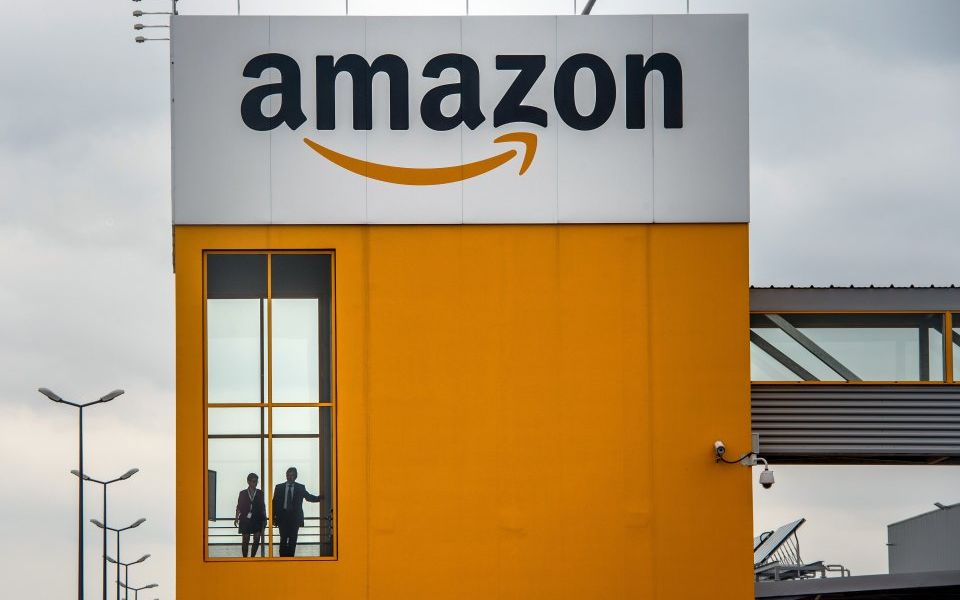Ditch the Chequers Agreement and Hammond can scrap his ‘Amazon tax’

Thanks to the Prime Minister’s commitment to raise NHS spending by an additional £20bn, the chancellor is now in a quandary.
Philip Hammond signed up to the theory that raising taxes increases revenues, which goes against the volumes of evidence that it actually depresses economic activity, encourages switching of spending to other lower-taxed areas, and results in falling revenues.
And yet, he has recently said he needs some new taxes to help fund his potential NHS black hole.
Read more: Taxing Amazon won’t save the UK high street
The idea that he might introduce a tax on e-cigarettes has caused equal measures of outrage and puzzlement. Why would he want to discourage smokers from switching to vaping, when it is beyond doubt far safer and will mean far fewer patients for the NHS to treat?
Chris Snowdon at the IEA got it right when he said it was like “taxing cycling to reduce obesity”.
The other wheeze he has admitted to be considering is introducing a so-called “Amazon Tax”, which really translates as a comprehensive assault against online retailing.
The advocates of the tax – which comprise a strange brew of conservatives with a small “c” from all parties and conservationists, together wishing to “save the high street” – know Amazon is a corporate bogey man. They think this tax would level the playing field for traditional shopping.
It’s rather like introducing a 5p tax on emails to try and encourage everyone to write and post letters.
There are three things we can be sure of.
An Amazon tax will not raise the expected revenue, because customers and online retailers would seek ways to avoid the tax.
It will not halt the drive towards more use of smart technology to buy goods and manage our lives, as the advantages outweigh even tax costs. And consequently, it most definitely would not “save” the high street.
Retailers who do not adapt, embrace, and innovate will, outside niche markets, go to the wall.
Rather than being smart, an online trading tax is dumb.
It will reduce UK productivity – exactly the opposite direction of travel that we need.
Rather than saving the high street from its ghastly uniformity of chain shops that make every town centre appear the same, entrepreneurs and property developers will diversify into creative specialisms.
An Amazon tax is the tax of a Luddite, and it requires to be castigated for the wrong-headed thinking it is.
Interestingly, the retailers trade body, the British Retail Consortium, says the same – pointing out that eight out of the top ten online retailers are already high street names who have been making the shift.
An Amazon tax will not just punish orders made with the great behemoth, but it would also cover the online divisions of Tesco, John Lewis, and M&S. Not to mention all the other online operators, such as airlines and Trip Advisor-type sites that have revolutionised travel, while closing high street travel agencies. The same goes for websites selling cars, jewellery, and unlimited items that are available online.
It so easily could be called an eBay tax – but that would be far less popular, and betray the intrusive scope of what is being considered.
Ironically, none of this needs to happen.
There is another way for Hammond to raise money for the NHS, and simultaneously ensure that the likes of Amazon pay their fair share in taxes. But it requires him taking the brave pill and admitting that he and the Prime Minister are wrong about the Chequers Agreement. Chequers should be abandoned.
If we accept it and stay in the single market for goods and foods, the current EU regime – which allows dozens of foreign multinationals to post their UK-generated turnover to countries such as Ireland and Luxembourg – will continue.
In a detailed 2016 study by Bob Lyddon for Global Britain, he demonstrated that this entirely legitimate procedure costs the exchequer about £10bn per annum.
If we leave the European Union’s Single Market and enjoy free trade under WTO rules, those companies will not be able to shift that turnover overseas. It will be repatriated to their UK-based companies where it belongs, and the corporation tax must be paid.
Rather than introduce an Amazon tax, the chancellor should embrace the concept of Britain as a free trading nation based on zero tariffs and lower taxes. If he does, he will find his revenues increase enough to pay for Theresa May’s promises.
Read more: Brexiters seek to revive Canada plus-plus-plus model